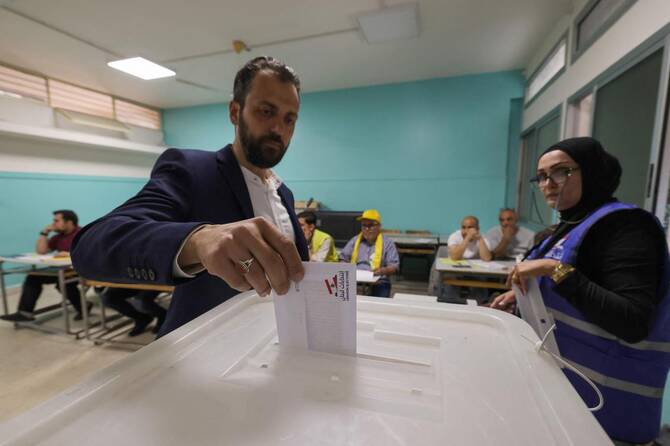News Flash
News Flash

BEIRUT, Lebanon, May 4, 2025 (BSS/AFP) - Lebanon on Sunday began the first
stage of long-delayed municipal elections, the first vote since a devastating
war between Israel and Hezbollah and after a new national government was
formed.
Polls opened at 7:00 am (0400 GMT) for voters in the Mount Lebanon district,
a heavily populated area with mixed political and religious affiliations that
includes Beirut's southern suburbs, a Hezbollah stronghold that was heavily
damaged by Israeli strikes.
"We have come to exercise our right and have our voices heard," said Hashem
Shamas, 39, a Hezbollah supporter, after voting in south Beirut's Shiyah
neighbourhood.
According to the interior ministry, 9,321 candidates including 1,179 women
are running in the Mount Lebanon district.
Lebanon is supposed to hold municipal elections every six years, but cash-
strapped authorities last held a local ballot in 2016.
President Joseph Aoun emphasised the vote's importance to "give confidence to
the people and internationally that Lebanon is rebuilding its institutions
and is back on the right track".
Aoun was elected in January and Prime Minister Nawaf Salam formed a
government the following month, ending a more than two-year vacuum as
Lebanon's balance of power shifted following the Israel-Hezbollah war.
The new authorities have promised reforms in order to gain the trust of the
international community, as well as unlock billions in bail-out funds amid a
five-year economic crisis. They have also vowed a state monopoly on bearing
arms.
Hezbollah was left badly weakened in more than a year of hostilities with
Israel, with a slew of commanders including the group's longtime chief,
Hassan Nasrallah, killed and its strongholds pummelled in the south and east
and in south Beirut.
Israel has continued to strike targets in Lebanon despite a ceasefire and
still has troops in five areas it considers "strategic".
In April 2024, the municipal polls were postponed amid the hostilities, which
escalated in September into a major Israeli bombing campaign and ground
incursion before the ceasefire about two months later.
Aoun urged voters not to let sectarian, "partisan or financial factors"
impact their vote.
Religious and political affiliations are usually key electoral considerations
in multi-confessional Lebanon, where power is shared along sectarian lines.
Municipal ballots however provide a greater margin for local community
dynamics to play a role.
Polls are set to close at 7:00 pm on Sunday.
Areas of northern Lebanon will vote on May 11, with Beirut and the country's
eastern Bekaa Valley area set to go to the polls on May 18, while voters in
the heavily damaged south will cast ballots on May 24.